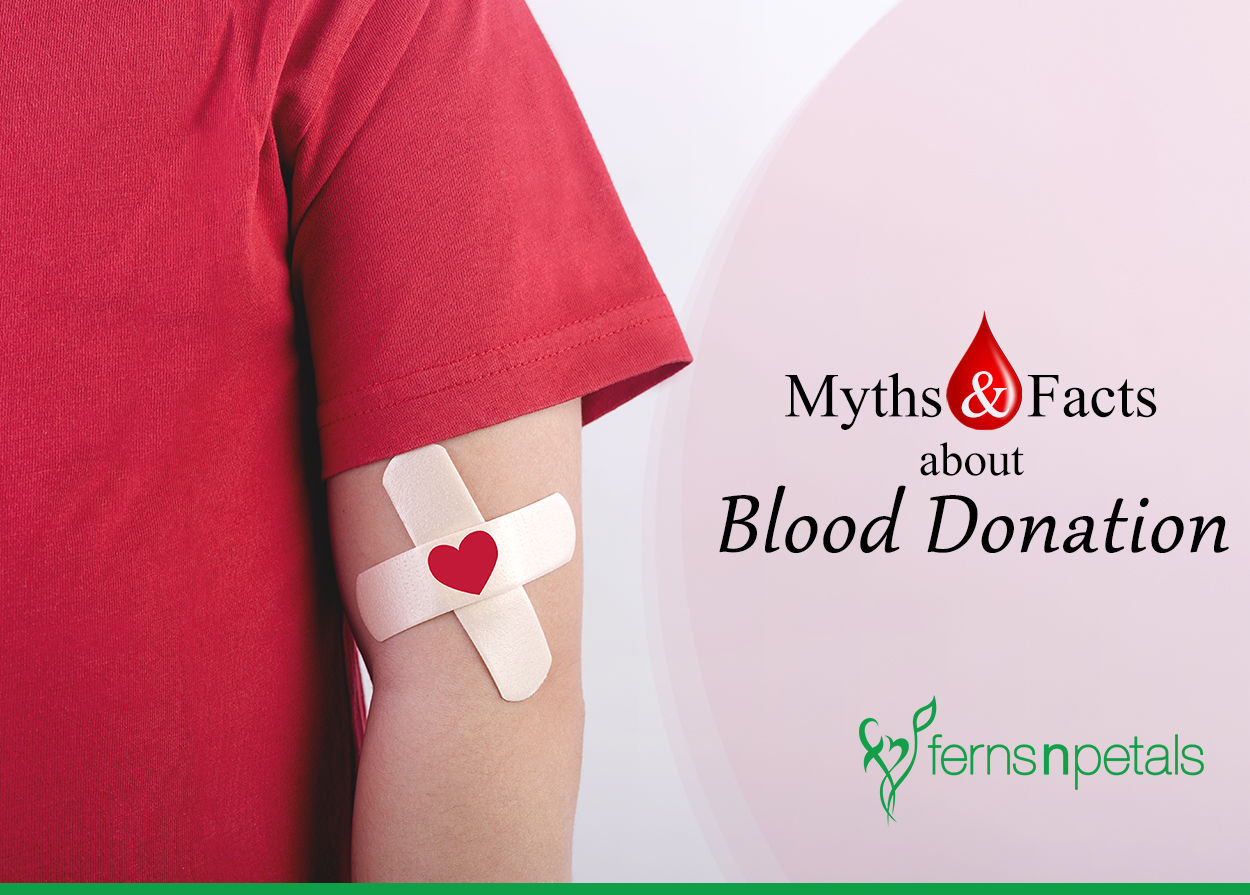Myths & Facts about Blood Donation
- Author: Apeksha Rawat Published: 10th June, 2020
World Blood Donor Day is celebrated on June 14 each year. It is observed to raise awareness about the need for safe blood and also to thank blood donors for their life-saving gift. Blood donation is a voluntary procedure that can help people suffering from life-threatening conditions.

Blood Donation is a noble deed as it helps in saving lives. There are a certain set of things one need to consider before donating blood. Read further to know the myths and facts about blood donation to reduce the risk of after-effects.
- The blood donor should be in good health. Serious illnesses like flu, cough or respiratory infection can affect blood donor’s ability to give blood. Those who are suffering from such illnesses should not donate blood until they get better
- The minimum age limit for blood donation is 18 years. There is no upper age restriction as long as the donor meets the eligibility requirements. The donor must weigh a minimum of 50 kg
- It is important for the donor to get a good night’s sleep before donation. Avoid heavy lifting or strenuous exercise afterwards
- Before donating blood, drink plenty of fluids. Eat nutritious food rich in iron and vitamin C, such as fish, beans, spinach, and red meat
- It is not necessary for someone to know their blood type before donation. But having the information can help avoid the last-minute hassle in emergency situations
- Donating blood does not hurt except the pinch of the needle and pressure on the arm from the tourniquet. In some cases, people may feel temporary dizziness or light-headedness during or after blood donation
- Those who smoke can also donate blood. They should avoid smoking for three hours after donating blood and also steer clear of alcohol for at least 24 hours
- There is no lasting danger to the immune system after blood donation. The Red Blood Cells return to normal within a few days; the White Blood Cells take a few weeks
- The entire blood donation process does not take more than 45 minutes to 1 hour
- Those who take supplements for diabetes cannot donate blood
- Those with blood pressure between 180 systolic & 100 diastolic can donate blood
- Those who have contracted hepatitis B, hepatitis C, HIV, chlamydia, genital warts, herpes cannot donate blood
- Those who donate blood can resume their daily activities almost right after the procedure





